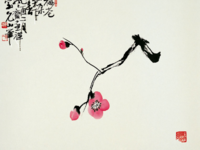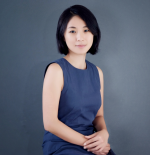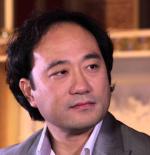
Free; no tickets or reservations
Hannah (Hyun Kyong) Chang lecturer and piano (ISM Fellow 2017–2018)
Daniel Suk tenor
While it was common for North American Protestant missionaries to experience resistant or hostile responses from the local populations in turn-of-the-century East Asia, their reception in Korea was markedly more positive. Having arrived in Korea during Japan’s imperial expansion into Korea (1880s), North American missionaries were perceived as potential allies in the Korean context and found themselves becoming intimately involved in Korean indigenous life. This history explains why so many Koreans felt inclined to appropriate Western music that was introduced through the expanding network of U.S. missionary and missionary-supported institutions in Japan-colonized Korea (1910–1945).
Throughout the colonial period, Korean churches and para-religious institutions indeed formed an alternative site of Korean cultural life, where the participants mourned and re-imagined a Korean community, and, just as importantly, entertained each other. It is in this unconventional sphere of diffuse resistance that many of the first Korean composers of Western-style music learned to write in both sacred and secular genres. This lecture recital explores a genre of vocal music fashioned by this early generation of Christian and Christian-affiliated composers, called “gagok.” Influenced by the Lied, gagok expressed a Korean identity for audiences gathered in churches and venues like the YMCA Hall in Seoul. We consider how gagok negotiated the social realities and traditional symbolisms of Korea through an apparently Western style of vocal music. We begin with some of the first gagok works, consider the genre’s development at the hands of Korea’s modernist composers, and end with religious reinterpretations by more contemporary composers.
Program:
Baetteonaganda (Boat Song) Paul L. Grove (dates unknown, missionary stationed in Korea from 1910–1920)
Bongseonhwa (Garden Balsam) Nanpa Hong (1898–1941)
Maui Teja (Prince Maui) Giyeong An (1900–1980)
Sanyuhwa (Mountain Flower) Sunnan Kim (1917–1986)
Guine (Swing) Isang Yun (1917–1995)
Yeohowaneun naui mokjasini (The Lord is My Shepherd) Unyung La (1922–1993)
Pinancheo itseuni (There is a Shelter) Unyung La
Sarang (Love) Geon-yong Lee (b. 1947)
About the performers:
 Hannah (Hyun Kyong) Chang, a native of South Korea, is a postdoctoral associate at the Yale Institute of Sacred Music. She is currently writing a book entitled Singing and Praying in Christian Pyongyang, 1894-1929: Trans-Pacific Voices in Japan-Occupied Korea. Before coming to Yale, she was a research professor at Ewha Women’s University in Seoul. Her dissertation on Korean Protestant music (UCLA, 2014) was supported by an Alvin H. Johnson AMS 50 Fellowship.
Hannah (Hyun Kyong) Chang, a native of South Korea, is a postdoctoral associate at the Yale Institute of Sacred Music. She is currently writing a book entitled Singing and Praying in Christian Pyongyang, 1894-1929: Trans-Pacific Voices in Japan-Occupied Korea. Before coming to Yale, she was a research professor at Ewha Women’s University in Seoul. Her dissertation on Korean Protestant music (UCLA, 2014) was supported by an Alvin H. Johnson AMS 50 Fellowship.
Hannah has enjoyed playing the piano from an early age. She studied piano with Ricardo del Carmen in Guatemala City and with Malcolm Bilson and Augustus Arnone at Cornell University, where she was awarded the Otto Stahl Award for Outstanding Piano Performance in 2004. She has performed with a number of chamber groups and choirs in Guatemala City, Ithaca, NY, and Los Angeles, CA.

Daniel is also an active music director and conductor. He served as conductor of the Chamber Orchestra of the National Conservatory of Mantova from 1996 to 1999. From 1998 to 2000, he served as artistic director and conductor of L’Opera Laboratory of Verona. From 2008 to 2011, he served as the guest conductor and assistant conductor for the UCLA Symphony and the UCLA Chorale. Since 2011, Daniel has been serving as artistic director and conductor for the all-professional Dream Orchestra.